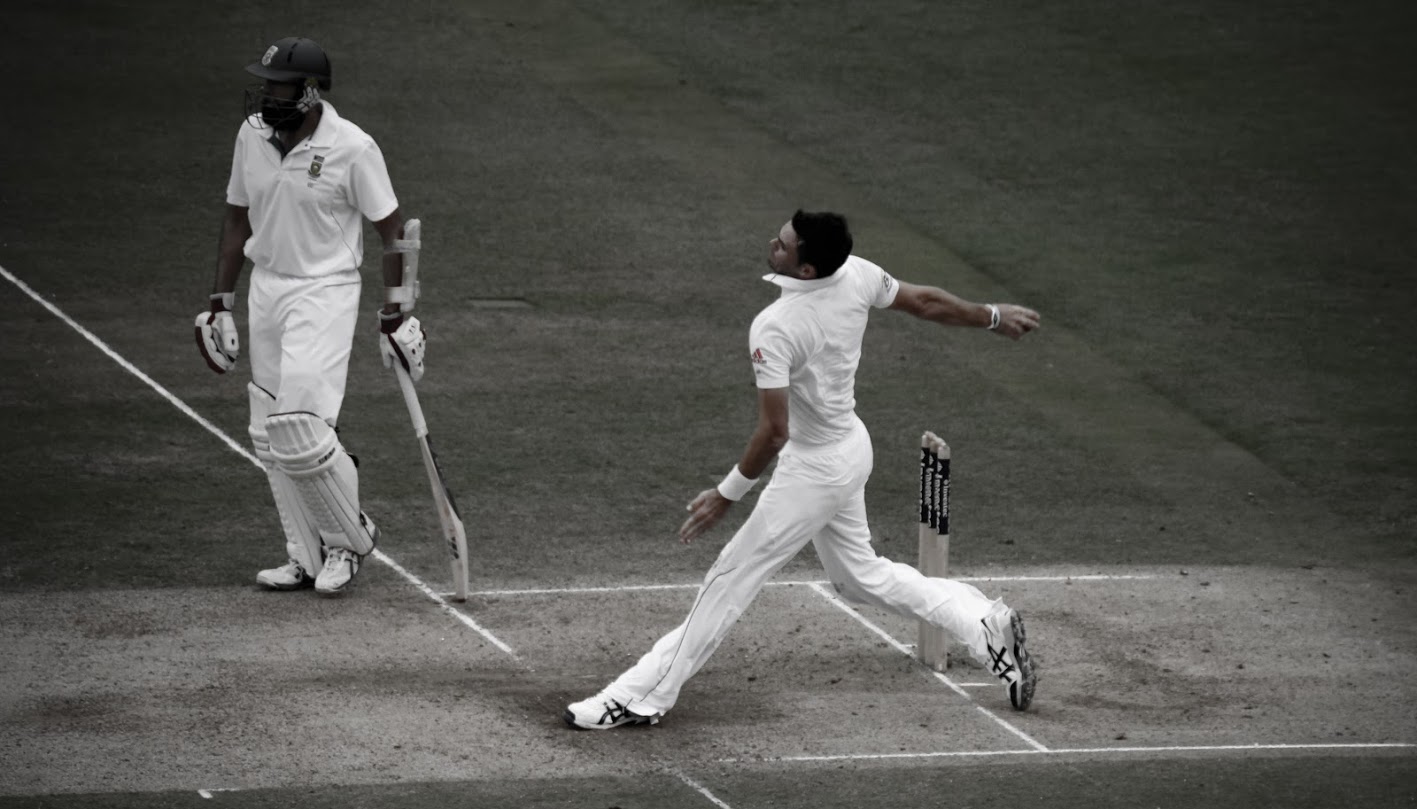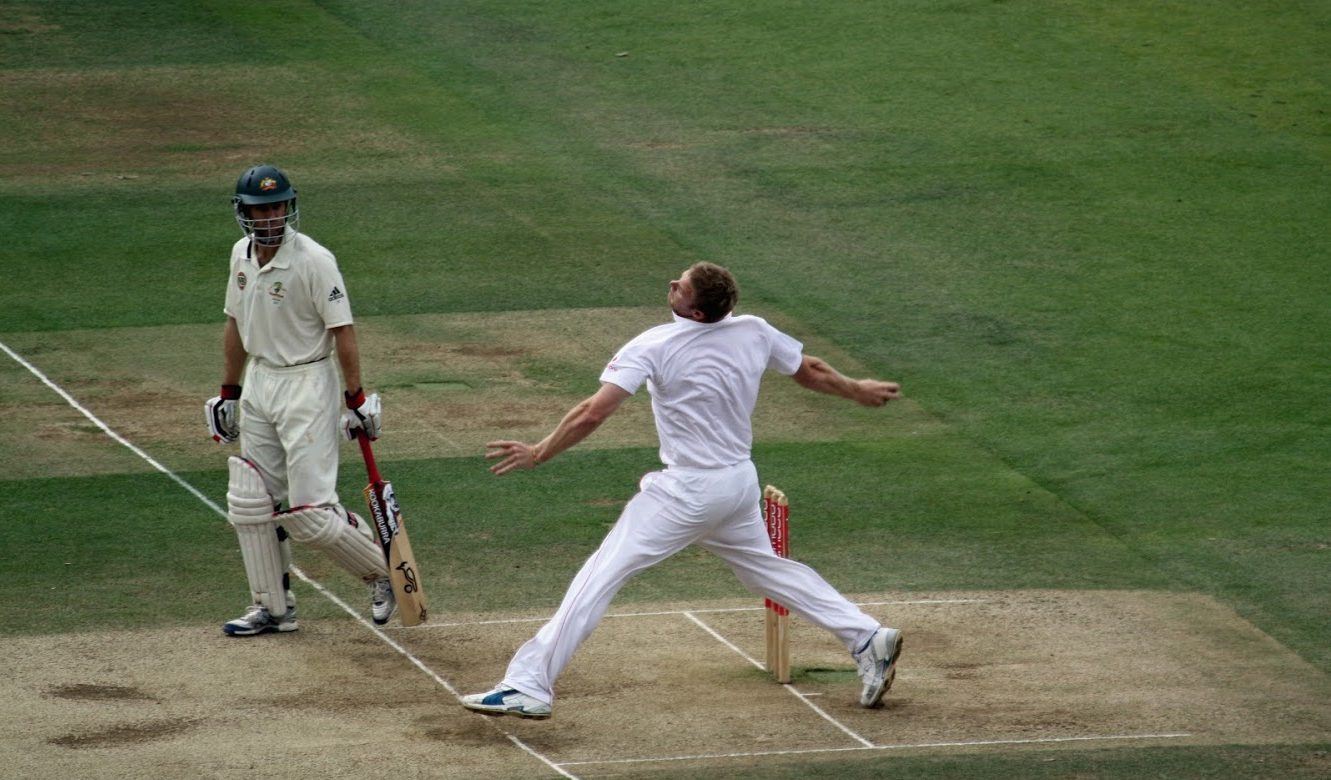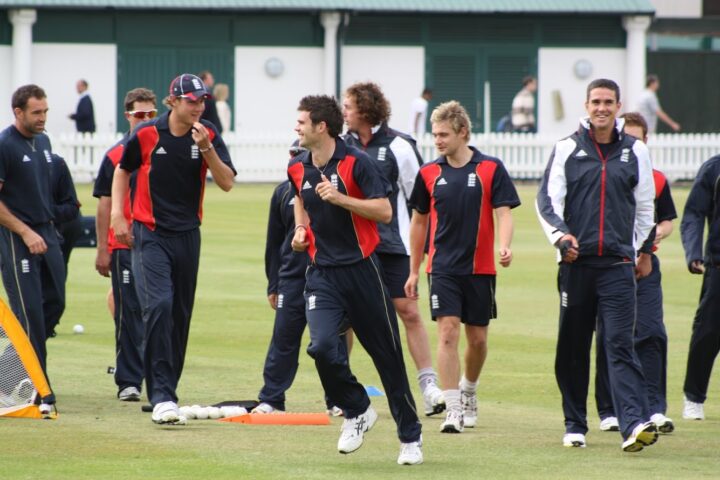My review copy of KP: The Autobiography arrived yesterday morning. It felt hot to the touch. There must be some serious burning in those pages. I had just read Paul Hayward’s interview piece in the Telegraph, so knew already that it would be a riveting read. Pietersen’s Petard or maybe Ashes to Ashes would not be unreasonable alternative titles.
This is a snapshot review after a single read.
The book is not sensational if you are a regular reader of The Full Toss and its discussion boards. It is a reaffirmation of everything written here since January. Dmitri take a bow, too. George Dobell, congratulations, you are a proper journalist after all. The story pieced together from scraps by the empty vessels and the know-nothings turned out to be true. The impertinent assumptions that bridged the gaps in the information stream were more reasonable than the so-called facts published by sections of the print media. Who’da thought?
The ECB attacked Pietersen and any dissenting voice, not to protect its good name from slanderous noises from outside cricket, but because it was attempting to conceal its treacherous, leak-ridden culture.
But we all knew that, didn’t we?
Even so, as I read through KP: The Autobiography’s 315 pages, I kept saying out loud, wow! It was an involuntary and regular exclamation. After textgate, the ECB wanted to confiscate Pietersen’s phone and have it forensically investigated for evidence. Wow! When Pietersen reached his landmark 8,000 test runs, Flower belittled the achievement and did not turn up for the traditional celebration. Wow! The ECB attempted to stop Pietersen playing for the Rest of the World XI in the MCC’s bicentenary match. Wow!
Written in an uncomplicated, easy style, with short sentences and a curious absence of quote marks, the reader is navigated through a complex story structured round the conflict points. This leads to a slightly disjointed, non-linear approach that makes picking up the rhythm of the narrative awkward at times, but the story remains compelling.
David Walsh is to be congratulated for helping shape a story containing big Shakespearean themes – ambition, treachery, jealousy, power – while always making sure that it was Pietersen’s voice we could hear. The telling of the story is often endearingly colloquial, even down to the slightly jarring repetitions used to reinforce points or pick up on a parked thread.
What of Pietersen the person? He comes across as a man-child at times; the naïve savante; an innocent abroad struggling to stay afloat in a dystopian, dysfunctional sea. He is not hard wired to make strategic allegiances, hold his own counsel or play the diplomatic game. He has an uncomplicated world view and expresses it with alarming candour. Thinks point, makes point. Sees ball, hits ball. If he wants something, there had better be a bloody good reason if he can’t have it. It is a self-absorbed view but not an unreasonable one. Though occasionally, it is.
Pietersen makes no attempt to play down his ambitions, nor is he shy of telling us that he has the talent and attitude to achieve them. He doesn’t like being ordinary. He is a bit different. You have to think big to achieve big. Why try making a high roller into a card counter? It’s a waste of time.
Well, South Africans do things differently, and it’s not everyone’s cup of English Breakfast, but he’s got a point. One hundred and four test caps, 13,000 international runs, 23 test centuries, test average of 47.28, all achieved in a style that fills grounds and makes spectators occupy just the edge of their seats even though they have paid for the whole bit of plastic. Talent? Achievement? Eclat? The story tells itself.
Nor does Pietersen absolve himself of fault along the way, of errors in judgment both on and off the field. He offers up more mea culpas than a lapsed Catholic who’s refound their faith. Critics may doubt his sincerity, but it feels genuine and heartfelt to me. How did it come to this, he asks? It is a question raised in sorrow and incredulity.
Back in South Africa, the convention of deferring to the seniors at Maritzburg College, ceased for juniors when they became seniors. In England, international cricketers are required to doff their caps to management at all times. If you have 100 caps, then doff it 100 times.
While Pietersen likens Cook to Ned Flanders, pillar of the community from The Simpsons, the England camp resembled Flanders field where the poppies blow. Pietersen just happened to be the tall poppy.
Only Pietersen himself takes up more space in the index than Andy Flower. It comes as no surprise that Flower is the principal target in the cross hairs. The shock is the extent to which Flower is said to have engineered Pietersen’s downfall.
“Andy Flower. Contagiously sour. Infectiously dour. He could walk into a room and suck all the joy out of it in five seconds. Just a Mood Hoover.” Surely one destined for the dictionary of cricketing quotations. Has anybody ever captured the essence of a character so brilliantly? Flower as Voldemort’s less amusing twin.
I will leave it to those that know Flower to refute the description, but, from the bits and pieces we do know about him, it is going to be hard to put this particular genie back in the bottle.
According to KP: The Autobiography, Flower ran the England squad not as a team but like a regiment. He was a control freak, who “sweats the small stuff” but missed or tolerated the bullying in the dressing room meted out by a clique of senior bowlers and Matt Prior. Commentators and opposition were astonished that junior England players were suffering more on-field sledging from their own teammates than the enemy batters.
The juniors were scared of the clique of senior bullies. Everybody was scared of Flower. A team of talented international cricketers was being treated like squaddies or schoolboys and denied free expression or happiness for weird, unexplained ideological reasons.
Petty regulations were introduced – no flip flops, no buddy fines, no time out, lights out at 8pm. I made the last one up, but you get the idea. Square bashing and work ethic defined the regime. Skinfold tests were compulsory, while Trott’s head, Swann’s elbow, Prior’s achilles and Pietersen’s knee were allowed to turn to mush.
Pietersen admits he wanted Flower removed as assistant coach when Peter Moores was sacked. He believes Flower never forgave him and kept his star player “on the periphery until such time as he was ready to show [him] the door.” After textgate, Pietersen argues that it was the ECB who wanted him reintegrated for the tour to India, while Flower saw it as a lost opportunity for sacking him. If this is true, then Jonathan Agnew has to look long and hard at his own journalistic judgment as he continues championing Flower as a forgiving and generous spirit.
A significant shift in the perception of textgate emerges when Pietersen reveals that he did not call Andy Strauss a doos in any Blackberry messages to the South Africans. Bear in mind too that doos in Afrikaans more or less means ‘idiot’ rather than disingenuous press reports that translates it as ‘c**t.’ According to Pietersen, it was the South Africans who called Strauss a doos, for some passing slight or other, and the Pietermaritzburg-born player failed to refute the vaguely unflattering moniker.
The acrimony heaped upon Pietersen for a pretty lame sin of omission looks even more disproportionate now than it did at the time. Pietersen talks about the humiliation of being forced to apologise to every player in a series of one-on-one meetings, wearing sackcloth and ashes and sitting on the naughty step. Flower sought to crush Pietersen’s spirit or see him ejected for failing to comply with Versailles-like reparations. Who was the bigger man? Pietersen for eating humble pie or Flower for serving it?
Apart from the leaks, the pettiness, the cold-hearted indifference to player welfare, one of the most spiteful episodes revealed in KP: The Autobiography emerged at the end. Pietersen is strangely unclear about whether the Melbourne players’ meeting was reported back to Flower or not, but he was summoned to explain his discussion with Alastair Cook over fitness training on the eve of the Sydney test. As the cordite clouds began to clear, Flower said to Pietersen, “ I hope you score some runs in this Test match.” It did not need Mark Bawden to explain the Pinteresque menace in those closing words.
Pietersen is remarkably generous about Alastair Cook throughout the book. Cook is, he says, a company man through and through, but he is a great, attritional batter placed in an impossibly difficult political position.
Cook is described as an introverted captain who stumbles over words and lacks natural articulacy. He was inclined to hand over to Matt Prior during team meetings. Prior was the non-commissioned officer who shouted a lot on the parade ground. The self-proclaimed Big Cheese, who was nothing more than a “Dairylea triangle thinking he was Brie.” In a book that studiously steers clear of diatribe, the passages on Prior exhibit the least control and most rage. Pietersen did not like Matt Prior, and, if the book is to be believed, there was something of the night about him.
There are one or two jarring notes in the book. I personally found the description of his emotions as he unpacked his England caps for the last time rather mawkish and over-sentimental. It did not sit well with the general sweep of the story.
The repeated references to his army of buddies felt slightly over-desperate and gave the impression that Pietersen was attempting to address the perennial accusations that he can’t get on with anybody. It seemed to reveal more about Pietersen’s insecurities than the undoubted number of really good friends he has around the world.
Neither does KP: The Autobiography make the best of his case. The most notable example being his protestation that he never gave the ECB an “it’s me or him” ultimatum in the lead up to the sacking of Peter Moores. Kevin, you admit telling Giles Clarke that you “couldn’t captain with Moores; [you’d] rather just go back to the ranks and bat.” Sorry. That’s an ultimatum.
But these are small quibbles. Pietersen seems to be in a really good place right now. He has stopped fighting to show that he is more English than John Bull. He feels good in his skin as a South African who has an English heritage.
I am disturbed by the number of times throughout the book that Pietersen refers to his head not being right, most graphically expressed when he says “his head was like a burst bag of shopping. All over the place.” Critics may accuse him of being over-dramatic, but the toxic environment in the England camp took few prisoners, particularly when they were as non-conformist as Pietersen. England has a poor record of attending to the psychological and physical wellbeing of its players.
He may harbour ambitions to play for England again, but it will not happen. I don’t think he believes it will happen. He probably left just in time to preserve his sanity. I am immensely privileged to have seen him play, and I am mad as hell at the manner of his leaving.
Pietersen’s is an Everyman story. Extraordinary, but one even foot soldiers will recognise as they attempt to combat the insidious forces that affect their daily lives. Will it make a difference? Probably not. In Pietersen’s own words, “As the song says … people hear what they want to hear and disregard the rest.”
This could have been an anodyne, damp squib of a story, but that was never Pietersen’s way. “Play it safe, play it safe … ah, what the hell. Swing for the rooftops.” Wow!
KP: The Autobiography is published by Sphere and is released on 9th October. Hardback £20.00. Ebook £10.99.
Tregaskis
7 October 2014









Excellent piece of work Tregaskis, in such a remarkably short time too! Your Turtle Tank piece should go down in the annals of cricket folklore for it’s insightfulness! As I write, events have moved on apace with the ECB leaking it’s “Dossier” to Cricinfo (Probably trying to protect the “integrity” of it’s embedded ones I would surmise?)
By the looks of it a belatedly scribbled timeline of such monumental banality it almost beggars belief! The only people I hope that get completely strung up with their own petard are that bunch of vipers and buffoons!….It’s getting late, and my expletive tank is on empty….I wonder what tomorrow will bring, and the day after, and the day after that? Once again, well done, and thank you!
Just like to echo what Dave says. Well done. I really, really hope you will get an apology from Agnew re issue about who brought KP back.
Have to say he was more balanced tonight on 5 live. Very critical of the dossier. But he seems to still be very supportive of Flower. He said it had been a terrible year for English cricket, and I do believe he genuinely hates the divisons this has caused.
KP and England were a marriage of convince. And when it no longer was convient, it was always going to end in a bitter divorce. The ECB try to take the high ground over text gate. But they should of sacked him for good,there and then, if they wanted to play the moral card. They brought him back because they rightly thought they could get something from him. And they did. A match and series winning innings in India.
The ends justifies the means.
“Well done. I really, really hope you will get an apology from Agnew re issue about who brought KP back”
I think he is still pushing it, or was a day or two ago. He has also kindly revealed his source for the claim: Cook and Flower. He has yet to explain whether, as a self-styled journalist, he is familiar with the concept of the unreliable source.
This reminds me slightly of the story once in Viz.
MAN HAD SEX WITH 10,000 WOMEN
A Newcastle man has had sex with more then ten thousand women, he told us in the pub last night.
[…] Tregaskis’s book review is now online. […]
Oh brilliant piece Tregaskis!
That’s an excellent read, thanks.
“After textgate, the ECB wanted to confiscate Pietersen’s phone and have it forensically investigated for evidence. Wow! When Pietersen reached his landmark 8,000 test runs, Flower belittled the achievement and did not turn up for the traditional celebration. Wow! The ECB attempted to stop Pietersen playing for the Rest of the World XI in the MCC’s bicentenary match. Wow!”
Wow indeed.
“Pietersen talks about the humiliation of being forced to apologise to every player in a series of one-on-one meetings”
There’s another one. Wow.
Brilliant review, miles better than the reviews of anyone who has been paid to do the job. Learned more about what’s actually in the book from you than from anything in the cricket press.
Only one thing I don’t agree with:
You are being a bit English here. Other nations have no more qualms about showing their emotions in what seems to us a cloying way than they do about speaking their minds without activating an inner censor and tugging their forelock. This is the KP who hits a hundred at Lord’s and tells Mark Nicholas “I’ve never felt so loved.” I find it endearing rather than mawkish.
Otherwise, outstanding work.
Does Tregaskis only have one name? Like Ronaldo?
Are his followers, Treggies?
And is there a uniform?
How’s all this being reported in Australia Ian? They must be loving this stuff?
A bit like us with homework gate I guess. Although that resulted in a new, good coach.
Hi Mark,
I don’t read much of the Australian press as they are pretty much all Murdoch rags. I tend to read the Aus’ version of the Guardian.
I expect there will be certain amount of glee in the reportage.
Here in South Africa there is the for and against Pietersen crowd. South Africans never ever deal well with ‘traitors’.
Which is how they regard Pietersen nothing in the opinion of most of the sports public here should supersede the right not to be picked to play for your country and it should be seen as a great honour to be passed over.
It’s all very strange and complex.
Sepercede.
The never to be sufficiently damned American spelling checker has it’s way with me yet again.
I was going to congratulate you for being the first person in years to spell supersede correctly. Far too many people assume it derives from cedere (to move) rather than severe (to sit).
Sedere, damn the non – Latin spell-checker!
If the ECB are going to continue ‘digging a hole’ can somebody just fill it in please
An excellent review, Tregaskis. Well done. Seems to capture the essence of the book in a way I haven’t seen elsewhere.
[…] off, I’d like to invite you to read the excellent review of Pietersen’s book by our contributor Tregaskis, which we published last night. We are very grateful to him for […]
Great article Tregaskis. I will have my copy delivered electronically after midnight. I will bear in mind your observations as I read.
[…] amid all the heat and noise around his book (see our review by Tregaskis), it’s been slightly overlooked that the ECB themselves are now also free to speak. They can […]
Yes, excellent review.
I read fast and usually read a book straight through, but I found I couldn’t do that with ‘KP’. The structure is quite disjointed and also the content is at times so angry and distressed that it’s indigestible in large chunks. Perhaps that’s why many of the newspaper reviews have said it gets worse as it goes on or it’s too much of a rant – that would be the impression you’d get if you had to (reluctantly) power through it in order to write some copy.
As you say, no surprises for those who’ve studied the issues involved, but there is some thoughtful stuff and there are many interesting insights and details. For example, the team had always traditionally had something called ‘fines meetings’. These seem to have been quite boisterous occasions when the players met on their own and had a go at each other in a cheerful way for anything from dropped catches to silly hairdos. Flower put a stop to these meetings. I wonder how many small niggles escalated into resentments and on-field shouting matches after that useful safety valve had been removed?
In terms of KP’s own personality, I suspect his authoritarian father has shaped him and his natural rebelliousness more than he’s aware of at present, but that’s just the amateur psychologist in me.
Like its author, the book is flawed and sometimes a bit exhausting, but a fascinating read and I’m glad he wrote it. I’m glad he wrote this book this year and didn’t wait to write a more measured book with more hindsight.
I went to the Guildford book signing last night and it was an excellent event The discussion was good and focused on the cricket and not any of the negative headlines. KP said that this book was necessary and sees why it will be perceived as it has been. KP also said that he will write a more positive book about in time. I look forward to this.
[…] Kp: the autobiography – a review | england cricket blog […]
I think the passage of time is proving KP to be mostly correct in his recollections of the England set-up.
Hope he gets a recall to the side this season. That would make me care about this team again. 2014 and 2015 thus far have stank.